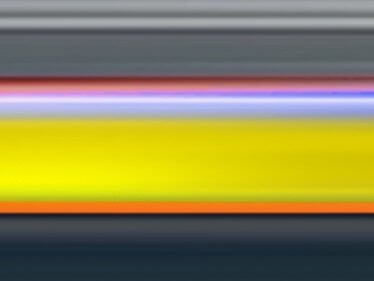Die Frau ohne Schatten - Schedule, Program & Tickets
Die Frau ohne Schatten
Date:
Time:
Price class:
Location:
30.01.2025 , Thursday
18:00
B
Deutsche Oper, Bismarckstraße 35, 10627 Berlin, Germany
Opera in three acts
Libretto by Hugo von Hofmannsthal
First performed on October 10, 1919 in Vienna
Premiere at the Deutsche Oper Berlin on January 26, 2025
approx. 4 hours / two breaks
In German with German and English surtitles
45 minutes before the start of the performance: Introduction in the foyer on the right
Recommended for ages 16 and up
About the content
About the piece
The new opera is to THE MAGIC FLUTE as THE ROSENKAVALIER is to FIGARO, Hugo von Hofmannsthal described his idea for further collaboration in a letter to Richard Strauss in 1911. In fact, the work, which was finally premiered eight years later, is reminiscent of Mozart's "Grand Opera": the encounter between different social classes, the fairy-tale-like plot charged with high symbolic value, but above all the awareness of a fundamental turning point in time that calls the previous order into question and makes reflection on the basic values of human coexistence an acute, urgent question. And here as there, knowledge can only be gained through difficult trials. The shadow plays a central role as a symbol of female fertility: the empress, who cannot have children herself, and her nurse, the dyer's wife, who is frustrated in her marriage, negotiate with it. But it is only when the empress realizes that she does not want to build her marital happiness and child happiness at the expense of others that the way for social coexistence opens up.
About the production
At the Deutsche Oper Berlin, Tobias Kratzer has placed the monumental fairytale opera at the end of his Strauss cycle: ARABELLA looks at the difficulties of even beginning an equal relationship, INTERMEZZO shows the portrait of everyday married life, and in DIE FRAU OHNE SCHATTEN the challenge of finding each other again after years of growing apart is at the forefront for him. A question that here grows far beyond the dimension of the purely private due to the ethical problem of surrogacy.
Subject to change.
Libretto by Hugo von Hofmannsthal
First performed on October 10, 1919 in Vienna
Premiere at the Deutsche Oper Berlin on January 26, 2025
approx. 4 hours / two breaks
In German with German and English surtitles
45 minutes before the start of the performance: Introduction in the foyer on the right
Recommended for ages 16 and up
About the content
About the piece
The new opera is to THE MAGIC FLUTE as THE ROSENKAVALIER is to FIGARO, Hugo von Hofmannsthal described his idea for further collaboration in a letter to Richard Strauss in 1911. In fact, the work, which was finally premiered eight years later, is reminiscent of Mozart's "Grand Opera": the encounter between different social classes, the fairy-tale-like plot charged with high symbolic value, but above all the awareness of a fundamental turning point in time that calls the previous order into question and makes reflection on the basic values of human coexistence an acute, urgent question. And here as there, knowledge can only be gained through difficult trials. The shadow plays a central role as a symbol of female fertility: the empress, who cannot have children herself, and her nurse, the dyer's wife, who is frustrated in her marriage, negotiate with it. But it is only when the empress realizes that she does not want to build her marital happiness and child happiness at the expense of others that the way for social coexistence opens up.
About the production
At the Deutsche Oper Berlin, Tobias Kratzer has placed the monumental fairytale opera at the end of his Strauss cycle: ARABELLA looks at the difficulties of even beginning an equal relationship, INTERMEZZO shows the portrait of everyday married life, and in DIE FRAU OHNE SCHATTEN the challenge of finding each other again after years of growing apart is at the forefront for him. A question that here grows far beyond the dimension of the purely private due to the ethical problem of surrogacy.
Subject to change.



